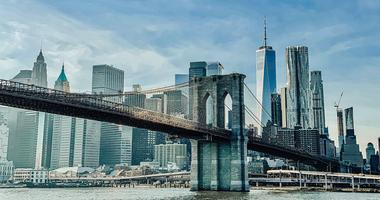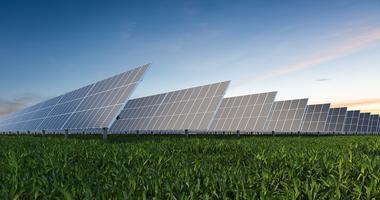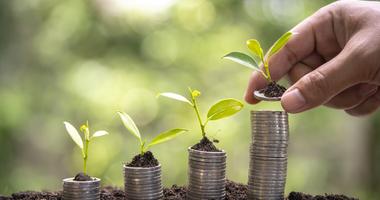
Building Friendship and Hope: Jess Pepper and the Story of Climate Cafe
Climate Cafe conversations and the climate action they inspire are demonstrating that positive change is happening every day in communities, often led by women and young people.
7 min read
By Jess Wilber, Community Engagement Associate
There are so many times in her life where Jess Pepper has asked herself: “What's the best thing I can do right now?” But one of the most important times was in 2013, when she was struck by how absent climate change was in the news and everyday conversations.
“The memory feels so vivid to me. I had the radio on in the background while I was tidying up the kitchen after having fed my children and put them to bed. I heard the news bulletin talking about how much carbon dioxide was in the atmosphere. It was such a casual comment, hardly any acknowledgment,” she remembered. “Having just worked on one of the strongest pieces of legislation in the world at the time, I realized that such news deserved much more than a casual mention on the third or fourth bullet point in the news. It was something we needed to be talking about, but nobody around me in my little community was talking about it.”
Jess had just moved back home to the small Scottish village of Birnam, Perthshire. She had no idea what possible engagement opportunities existed. She got online and discovered that Climate Reality’s Chicago Leadership Corps training was coming up. Reflecting on the choice to attend, Jess remembers being conflicted about the financial burden, carbon emissions, and stress of bringing her two young children with her to the training. But with so few trained leaders in Scotland, she was determined to increase the climate literacy of her community.
“I had long thought that policy advocacy was the best thing that I could be involved in. But when my children were young, I no longer had the time and capacity for such large-scale policy work. So, I realized that the best thing that I could do was contribute to climate action in my own community. If each of us can constantly be reassessing what we can do in this current moment to promote change, that’s how we’ll halt climate change.”
It was this dedication to promoting local climate action that paved the way for Climate Café, a network of climate conversation circles all over the globe. These community led discussions offer a safe space for community members from different sectors to focus on solutions. Most importantly, these conversations and the climate action they inspire are demonstrating that positive change is happening every day in communities, often led by women and young people.
Last year, Jess Pepper was included in BBC’s 100 most inspiring and influential women of 2023. She was just one of 28 women climate experts to receive this honor, several of whom have also attended a Climate Reality Leadership Corps training and participated in Climate Cafés.
To celebrate Women’s History Month, we’re diving into the origins of Climate Café, exploring how the model helps to ease climate anxiety and promote local action, and uplifting the incredible women who have been leading it for the past nine years.
Building a Safe Space for Local Climate Conversations
The idea for Climate Café first emerged in 2015. Jess had asked a friend group if anyone would be interested in getting together over tea and cake to talk about these very real issues she had just gotten back from learning about. She was met with hesitation and confusion. Folks weren’t sure why they would spend their time together discussing such a “depressing topic.” Jess had the slide deck from the 2013 Chicago training and planned to present that to the group, but she didn’t have the confidence to present such detailed information. As she stood in her living room looking around at all her friends, she realized that in order for all of them to feel comfortable opening up about this issue, she needed to cultivate a much more informal discussion.
“Even after working on comprehensive climate legislation with WWF and the Stop Climate Chaos Coalition in Scotland and attending the Chicago training, I didn’t feel like I was the best climate ambassador for my community. But after that first conversation with my friends, I had requests from over a dozen people wanting to learn more. As time went on, we decided these conversations should take place more frequently. Our goal was to be as inclusive and welcoming as possible, opening the space to anyone who had questions, concerns, and ideas to share. Once people felt comfortable in the discussion circle, the conversations would just run away.”
Jess and her friends hosted a pilot version of Climate Café between June and December of 2015. By the following year, they’d reached over 100 people in their small, 1,200-person community. Their mailing list expanded to reach neighboring communities, who began hosting their own hyper-local chats up to 10 miles down the road. Today, there are 16 Climate Café groups in Scotland alone.
Everyone has their own niche in the climate movement, and it will take all of us working in our own way to catalyze change. Climate Cafés are fantastic alternative spaces to speak and learn about climate change. This is especially true for people who aren't natural born public speakers and struggle with the traditional presentation model that Climate Reality trains its leaders to deliver. And if we’re going to push for effective climate legislation at all levels of government, we must first ensure that we’re offering the right entry point for folks to get involved.
“Politicians are not able to lead on climate unless they feel the political will growing amongst their constituents. What I see now is that the space for politicians, business leaders, and other decision makers is becoming larger, allowing them to be bolder,” Jess says. “I've always been really encouraged by anecdotes about communities coming together and uniting around single issues, building coalitions between diverse movements. And Climate Café offers the perfect space for these kinds of connections to form. It allows people to develop confidence in their own knowledge and abilities, to build one another up as climate leaders.”
Expanding and Refining the Climate Café Model
Jess says that those involved in Climate Café are learning and finding ways to improve the model every day. Every café has its own unique identity, but many share common themes. Many of these spaces are intergenerational, with participants as young as 6 leading conversations. Many cafés also promote creative solutions and inspire community art projects. Most importantly, all these spaces offer a sense of agency, community, and belonging for their participants.
“We’ve had people enter the Climate Café network and use the model in very different ways. For some folks, there’ll be sessions about grief. For others, they’ll focus on understanding specific climate impacts affecting their community. But that’s the beauty of the flexible model and informal setting that Climate Café deploys. All you need is a group of people willing to chat over a hot beverage. You don't have to overcomplicate it.
“There’s nothing slick or shiny about Climate Café. Community-led grassroots organizing is always a bit messy; it's very organic. It doesn’t have a set hierarchy or order, but that open and welcoming atmosphere is what makes people feel seen and heard. It takes a lot of thought and care to foster these communities. Yuiko Mitani, Climate Reality’s Japan branch manager, has said these spaces offer a gentle form of climate advocacy.”
At COP 26 in Glasgow, Jess had the opportunity to organize a Climate Café on the ground. In collaboration with Climate Reality, she created a space for civil society members from all over the globe to talk about the new call for bold and immediate action on climate. Many folks expressed concern and hopelessness, saying they felt as though they were the only ones in their community who understood the urgency of the climate crisis. There were even 10 other Climate Cafés from different parts of the globe who were tuning in at odd hours to join the conversations.
Last year, the team was able to recreate their global pop-up Climate Café event at COP 28 in Dubai. From the Philippines to Mexico, people whose voices might not otherwise have been heard in negotiations had the opportunity to share their stories throughout the summit.
Uplifting Community Leaders
Effective climate action starts at the local level, with the people who know their community best. But the sense of urgency surrounding the climate crisis can be overwhelming for many people. It doesn’t allow them the time and space to fully grasp the science and draw their own conclusions.
“Every community has a wealth of knowledge and expertise for climate activists to tap into. Once given the space to explore their ideas, folks will offer up all kinds of climate solutions. Someone may want to launch a zero-waste shop, while another may want to build a community garden. Whatever it is, Climate Café gives them the freedom to envision these ideas and create an action plan,” Jess says. “More importantly, it ensures folks are collaborating on these projects, not competing for resources and capital. These projects and collaborations may never have been possible without these conversations.”
Jess also notes that the diversity of perspectives and identities in these conversations is what makes them so rich and fulfilling. The more accessible these conversations are, the more opportunities participants have to make new connections. The more connections are formed, the rawer and more vulnerable the conversations will become. That vulnerability is precisely what helps participants become more resilient in the face of the climate crisis and generate momentum for change.
“Women especially are taught not to be bold. We’re actively discouraged from taking leadership positions in many sectors of society, especially the workplace. But we’ve always been leaders in our own communities. Climate Café reminds us that we shouldn’t be sitting and waiting for someone else to stand up. I believe that women are uniquely positioned to be effective leaders in this model especially because it’s community led.”
Looking at the list of Climate Café coordinators, the vast majority of them are women.
How Can You Get Involved?
Whoever you are and wherever you are, your ideas will be valued from the moment you enter Climate Café - even if you’re a climate denier. No matter what you’re thinking about the climate crisis, you’ll be heard.
The Climate Café Network Hub can help you find a Climate Café near you or provide the support and guidance you need to start your own.
Jess recommends having two or three people who would like to be coordinators for each café. It’s also important for the group to have access to a safe, public space that's accessible for everybody who wants to join. By joining their network, you can connect with other Climate Café coordinators and learn best practices for facilitating inclusive conversations. The network of coordinators almost functions as its own Climate Café, with leaders leaning on each other to offer encouragement, prevent burnout, and tackle climate anxiety.
With a variety of brand-new resources and hundreds of success stories to inspire your conversations, the most important thing you can do today is talk about climate change. No matter how small of a scale your conversations start on. Now grab a cup of tea and get chatting!
Discover how you can lead on climate in your community by signing up to get the latest on our upcoming Climate Reality Leadership Corps trainings. Learn more about becoming a Climate Reality Leader and supporting a more sustainable tomorrow here.




